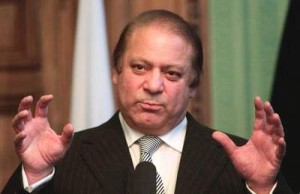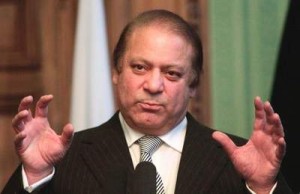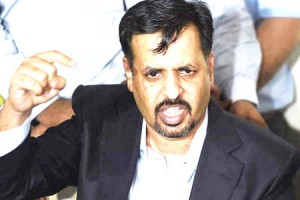Arab News
MUHAMMAD WAQAS
SOON after assuming power, Prime Minister Nawaz Sharif had clearly stated his intention to take strict action against corrupt officials and streamline the process for appointments in integral state institutions.
His pledge to promote accountability and launch an anti-corruption drive should have indicated a close working relationship with the National Accountability Bureau (NAB), Pakistan’ premier watchdog institution entrusted with rooting out corruption. But, things are turning out to be different in reality. Recently, the NAB has come under scathing criticism from Sharif, who has threatened to clip its powers, for exceeding the given mandate and “harassment of government officers.” There is no doubt that the NAB is far from being perfect — it has often been criticized for political victimization and lack of transparency in its investigation process. However, the government must build its capacity as an independent institution and equip it with the necessary powers to bring plunderers of national wealth to justice. The recent NAB investigations into the Sindh police department are a case in point how the bureau can prove its worth. Keeping in view Pakistan’s internal security challenges, the police department has become a natural and rather unsurprising choice, to launch investigations into alleged corruption. The graft case has gained widespread media coverage with the emergence of evidence that implicates key police officials in massive financial irregularities and illegal recruitments. Heads have already started to roll too, with the sacking of Sindh police chief over corruption allegations. However, the removal of a top official will not do much to purge the police department of corruption. The problems of this state institution are far more complex to be solved by only changes in its leadership. The incompetency of police department has exposed Pakistan to serious security threats from criminals, militant groups and other mafias. To a large degree, this ineptness is a result of political patronage of criminals, who have been illegally appointed in the law enforcement agency. As a result, instead of fighting these notorious elements, the police have been involved in sheltering them from intelligence agencies and the judiciary. While the police force has failed to nab criminals, the country’s legal system has also disappointed in delivering justice. For the past several years, surveys by Transparency International have revealed that, along with the police, judiciary in Pakistan is viewed as one of the most corrupt national institutions. The government should show its seriousness in curbing corruption by supporting the NAB to also target corrupt judges. The problem is especially rampant in lower courts, where the judges are promoted not on merit but wishes of powerful politicians to serve their own vested interests. Consequently, the backlog of cases in judicial system has touched more than 1.7 million and chronic delays make dispensation of justice a very costly endeavor. In this light, recent comments by Chief Justice Jamali that the country’s “time-tested judicial system has no defects” could be viewed with great skepticism by many.
For Pakistan to progress, it is imperative that the government places eradication of corruption as a top priority. To achieve this purpose, it must fully back the independence of NAB so that it may efficiently and expeditiously pursue cases against corrupt officials. At the same time, all other relevant institutions that have the legal powers to bring these criminals to justice should step up their game.





